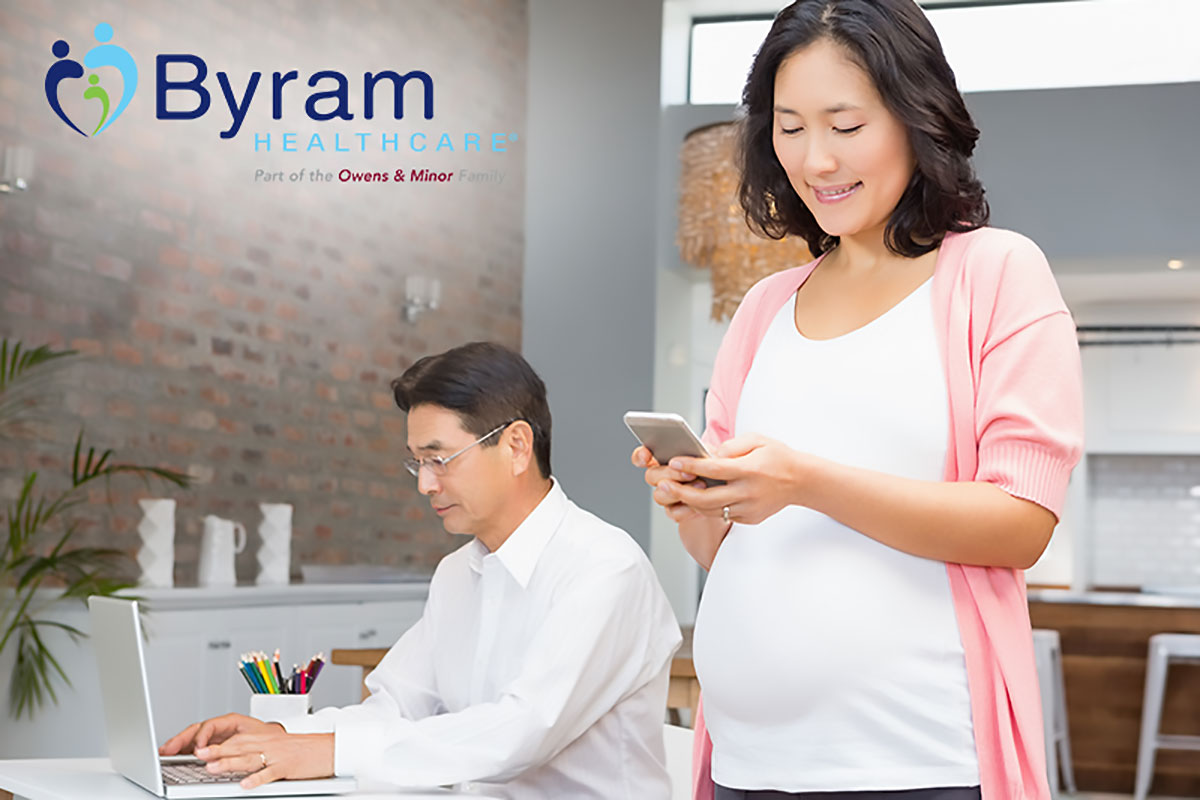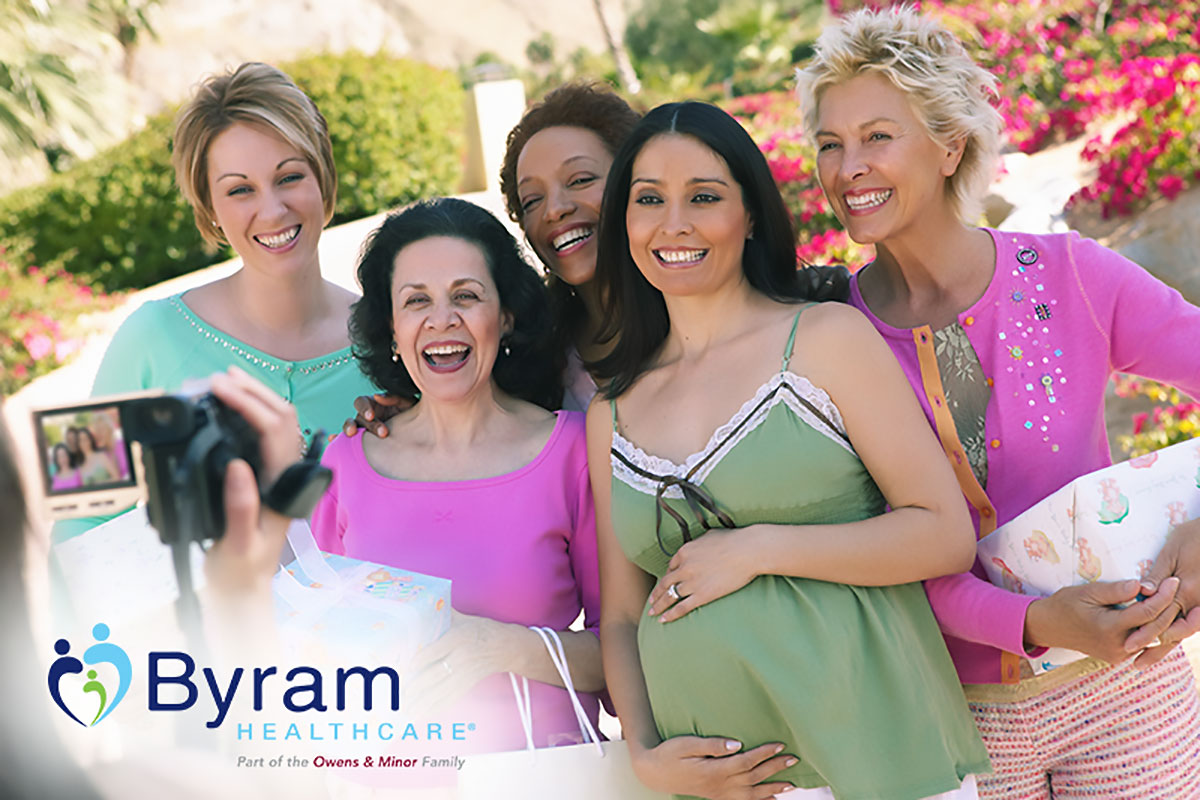Geriatric Pregnancy Facts
The world is changing. Women are advancing in their careers, dating sites have changed the way we meet people, and couples are waiting longer than ever to start a family. None of which is a bad thing! Life happens at different paces for everyone and that doesn’t mean you should avoid getting pregnant once you hit 35 in fear of having a geriatric pregnancy.
Don’t let this scientific term scare you—more women are waiting until they’re older to have babies than ever before. In fact, the CDC published a report finding that today, there are more women in their thirties having babies than women in their twenties.
Before you jump in and start trying, there are a few things you’ll want to educate yourself on. After reading this article on the truth behind geriatric pregnancies, schedule an appointment and talk to your doctor about your plans.
What is a Geriatric Pregnancy?
The term geriatric pregnancy is a fancy medical term used for any woman who gets pregnant after they turn 35. It was created years ago and carries a stigma that elicits fear in many women. For that reason, many doctors today have abandoned the term and replaced it with the descriptor of being an “advanced maternal age.”
Technically speaking, a geriatric pregnancy is considered a “higher risk” pregnancy, but that’s only because overall pregnancy-related complications are higher than for women in their late 20s and early 30s. “High risk” doesn’t directly translate into “your risk is high.” In reality, your risk is still relatively low, especially if you maintain a healthy lifestyle and work closely with your doctor.
Not surprisingly, as more information becomes available, geriatric pregnancies are changing and more women are waiting to start their families.
The Real Risks with Geriatric Pregnancies
The risks that are associated with geriatric pregnancy are because of your number of eggs. As a woman, we’re born with all of the eggs we’ll have for the course of our entire life. The eggs we have left after 35 haven’t been used, so they have a higher chance of having developed some sort of abnormality. Simply put, as we age, the risk of abnormalities in our eggs grows.
In conjunction with abnormal eggs, here are a few of the published risks of having a geriatric pregnancy:
Miscarriage
One of the risks that accompany a geriatric pregnancy is the increased possibility of a miscarriage. Since your eggs are more likely to have chromosomal abnormalities, the older you get, the more likely you are to miscarry.
At 25, your chances of having a miscarriage are around 15%, at 35 it rises to 25%, and at 40 it climbs to about 35-40%.
With all pregnancies, regardless of age, your risk of miscarriage continue to decrease after you’ve passed 12 weeks.
Preeclampsia
Preeclampsia is a pregnancy-specific condition that is characterized by high blood pressure and excessive amounts of protein in your urine—a sign that certain organs like the kidneys and liver aren’t working properly. It’s a serious condition that should not be ignored.
As you age, the risk increased about 1.5-2 fold from a baseline 3-4% risk. This is still relatively low, but you should always watch for symptoms and seek help immediately if they present themselves.
Gestational Diabetes
This is one of the most common and troublesome parts of geriatric pregnancies. The risk of gestational diabetes increases a good amount as you age. Women under 35 having about a 3% chance of developing it, women who are 35-39 have a 5.3% chance, and women over 40 have roughly an 8% chance of developing gestational diabetes.
To combat this, make sure you’re heating a healthy diet and getting enough physical activity. Always talk to your doctor if you already have diabetes and are trying to get pregnant, regardless of your age.
Stillbirth
Like miscarriages, one of the most devastating things that occur during pregnancy is a stillbirth. Luckily, stillbirth rates do not rise substantially with geriatric pregnancies. The biggest concern is when women go past their due date, but as long as you’re working with your doctor to induce labor if needed, the chances are very small.
Women giving birth in their late 30s have a stillbirth risk of just over 1% and women in their 40s have a risk of about 1-2%.
Other Risks
Other risks of having an advanced maternal age during pregnancy include:
- Fertility Problems
- Premature Birth
- Low Birth Weight
- Chromosomal Defects
- Emergency C-Section
- High Blood Pressure
To reduce the chances of these risks, we highly recommend working with your doctor to determine which, if any, prescreening tests you should take. Today, there are a number of tests available to help you prepare for a healthy pregnancy and ensure you’re giving your baby a healthy environment for development. It’s possible to test for birth defects using screening tests, chorionic villus sampling, and amniocentesis if you’d like.
Benefits of a Geriatric Pregnancy
While there are some scary risks, remember that with a healthy lifestyle, regular checkups, and pregnancy prescreening, you don’t have too much to worry about. As long as you work with your doctor and listen to their medical advice, things should go smoothly. While the risks seem overwhelming, don’t forget that geriatric pregnancies come with a number of benefits.
For starters, becoming a mom after the age of 35 means that you’ve had some time to mature, develop patience, and gain a better idea of what you want in life. Most people at 35 have a stable job, stronger education, and more overall resources to care for their children. These characteristics of a parent are projected onto your child and lead to more positive long-term outcomes in their lives3, which is exactly what all parents want for their kids.
Women over the age of 35 who are trying to conceive are also more committed to being healthy for their baby. They prioritize their health because they’ve been given this stigma of being too old for a healthy pregnancy. Plus, women of an advanced maternal age have had the time to create healthy habits and find it easier to extend those to pregnancy.
Finally, in a weird turn of events, an ongoing study – The New England Centenarian Study – is finding that women who give birth at an advanced maternal age were more likely to live longer than those who gave birth when they were younger.
Some people have speculated that this is because having a child helps keep you young and carefree, so when it happens later in life, the benefits are carried into old age.
Tips for a Healthy Geriatric Pregnancy
Unsurprisingly, tips for a healthy geriatric pregnancy are the same as tips for a healthy pregnancy in people under the age of 35. As long as you take care of your mind, body, and soul, you’ll give your baby the best conditions for healthy development.

- Get a preconception checkup
- Exercise regularly
- Maintain a healthy diet
- Take your prenatal vitamins regularly
- Ensure that you’re getting at least 400 micrograms of folic acid per day
- Get to a healthy weight and maintain a healthy weight during pregnancy
- Never smoke, drink, or use any substances
- Talk to your doctor about any prescriptions
- Practice good mental health
- Maintain a healthy stress level
- Get treatment for preexisting health conditions
- Don’t skip prenatal care checkups
Conclusion
If you’re over the age of 35 and are trying to conceive, talk to your doctor today. Your age has such a minor role in the health of your pregnancy, but it’s still important to know your risks and take measures on improving them. If you have any questions about geriatric pregnancies or any of the risks involved, get in contact with your doctor or OBGYN. When planning for your pregnancy, don’t forget that thanks to the Affordable Care Act, expectant mothers are eligible to receive an electric breast pump covered by their insurance provider! Visit Byram Healthcare today to browse all of the available selections and find other great pregnancy tips, info, and product reviews.
If you have any stories about your pregnancy after 35 and want to share them with other moms-to-be, visit our Facebook page today and leave a comment! We love hearing from our readers!






